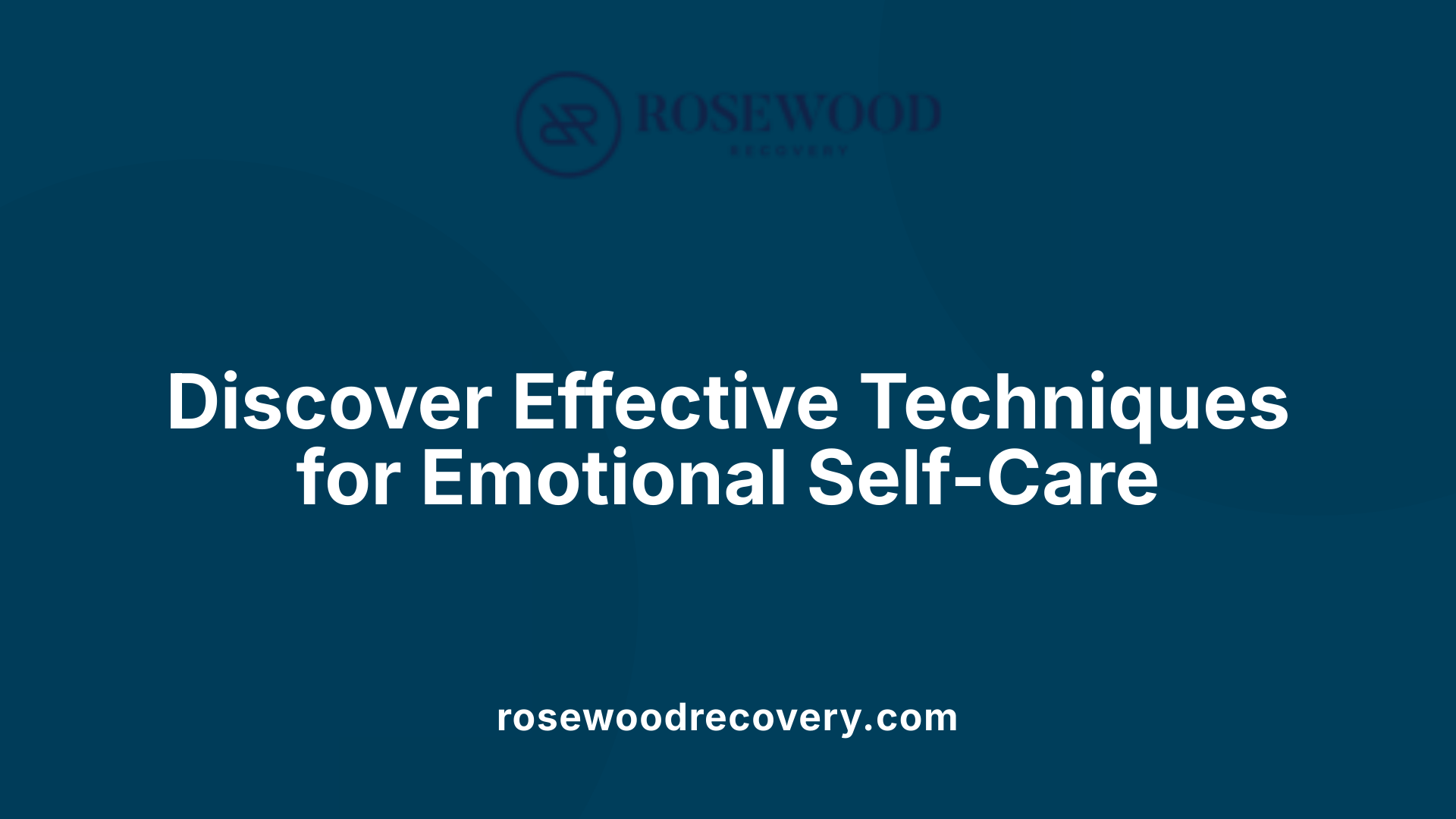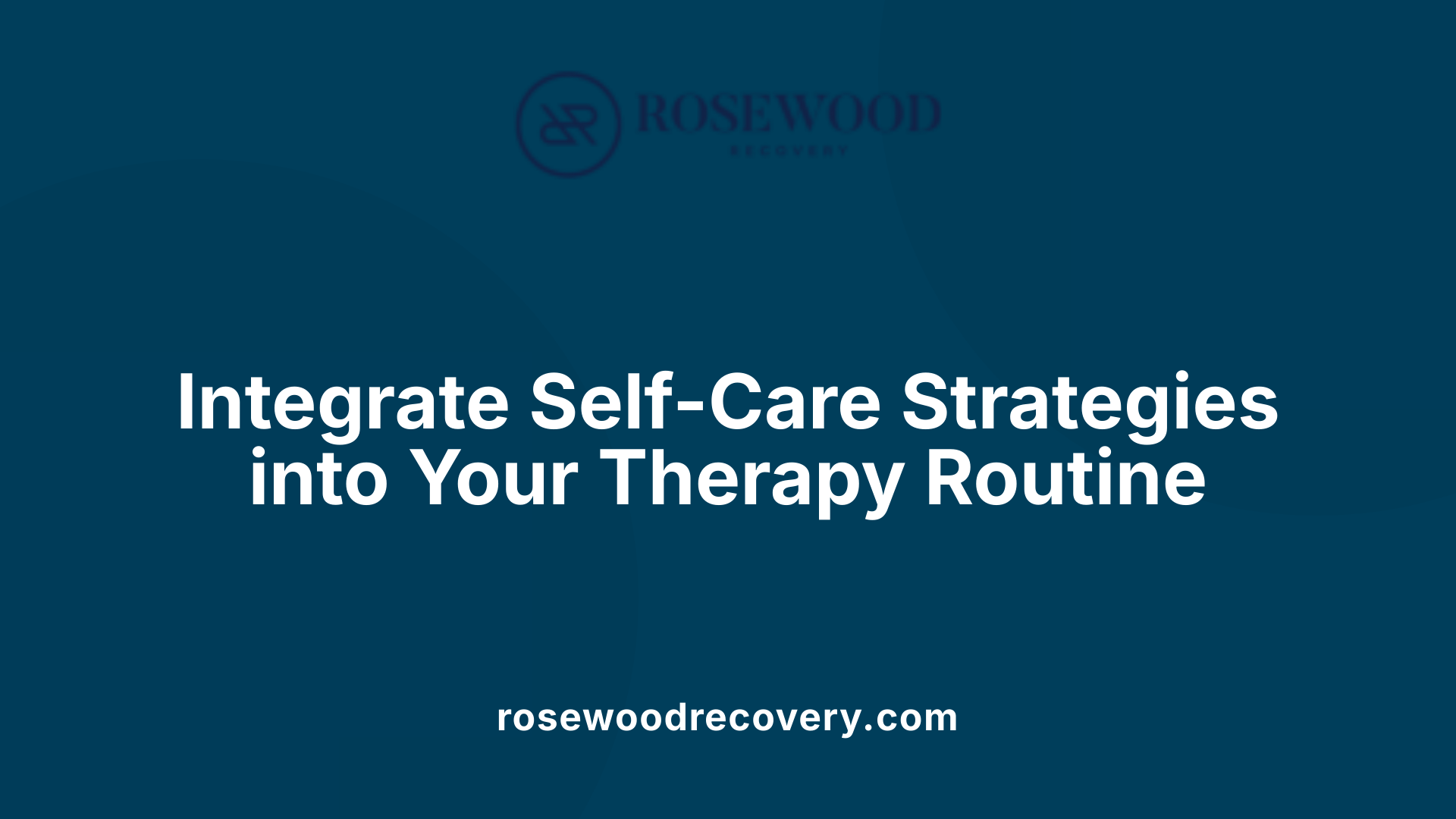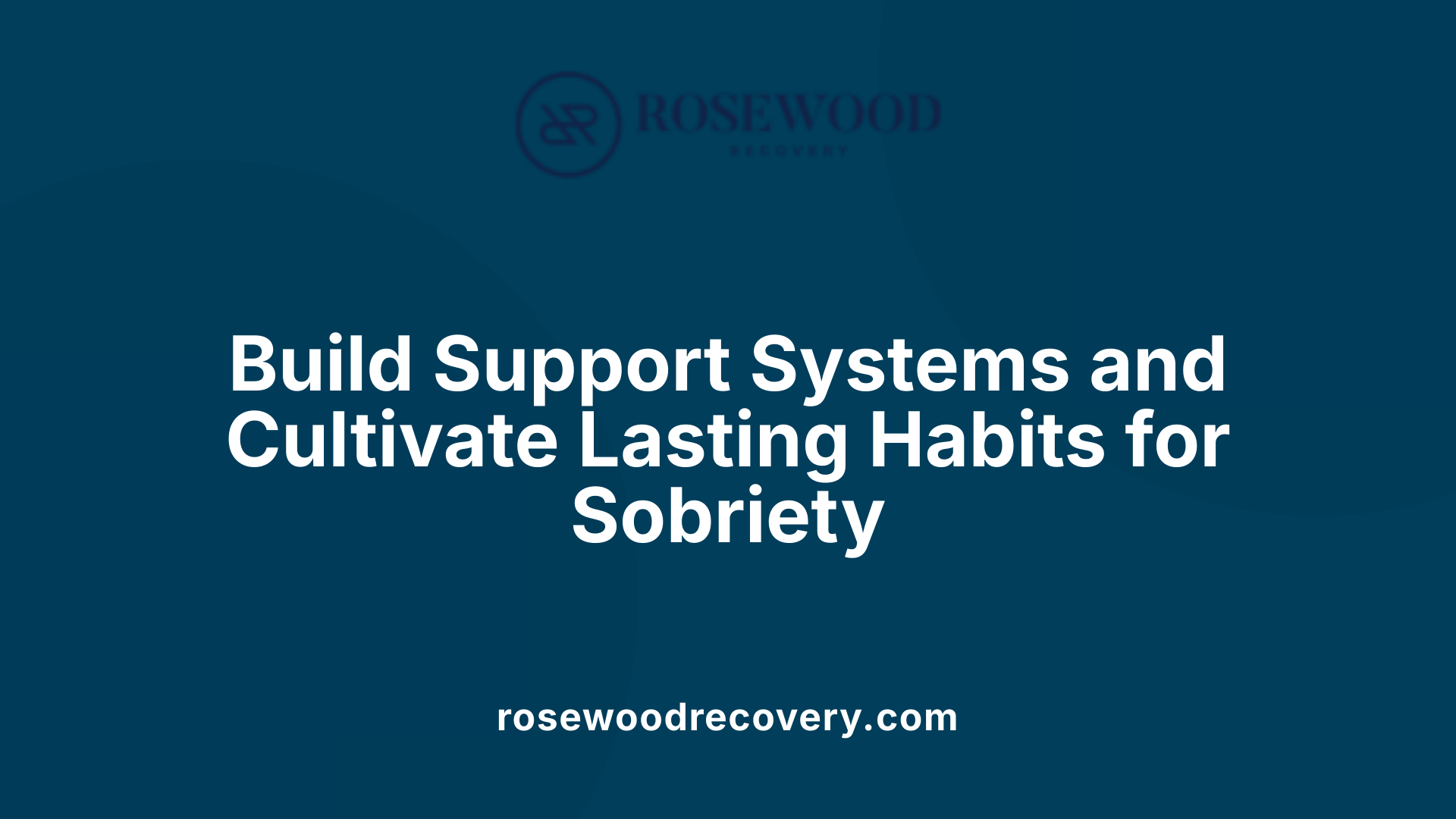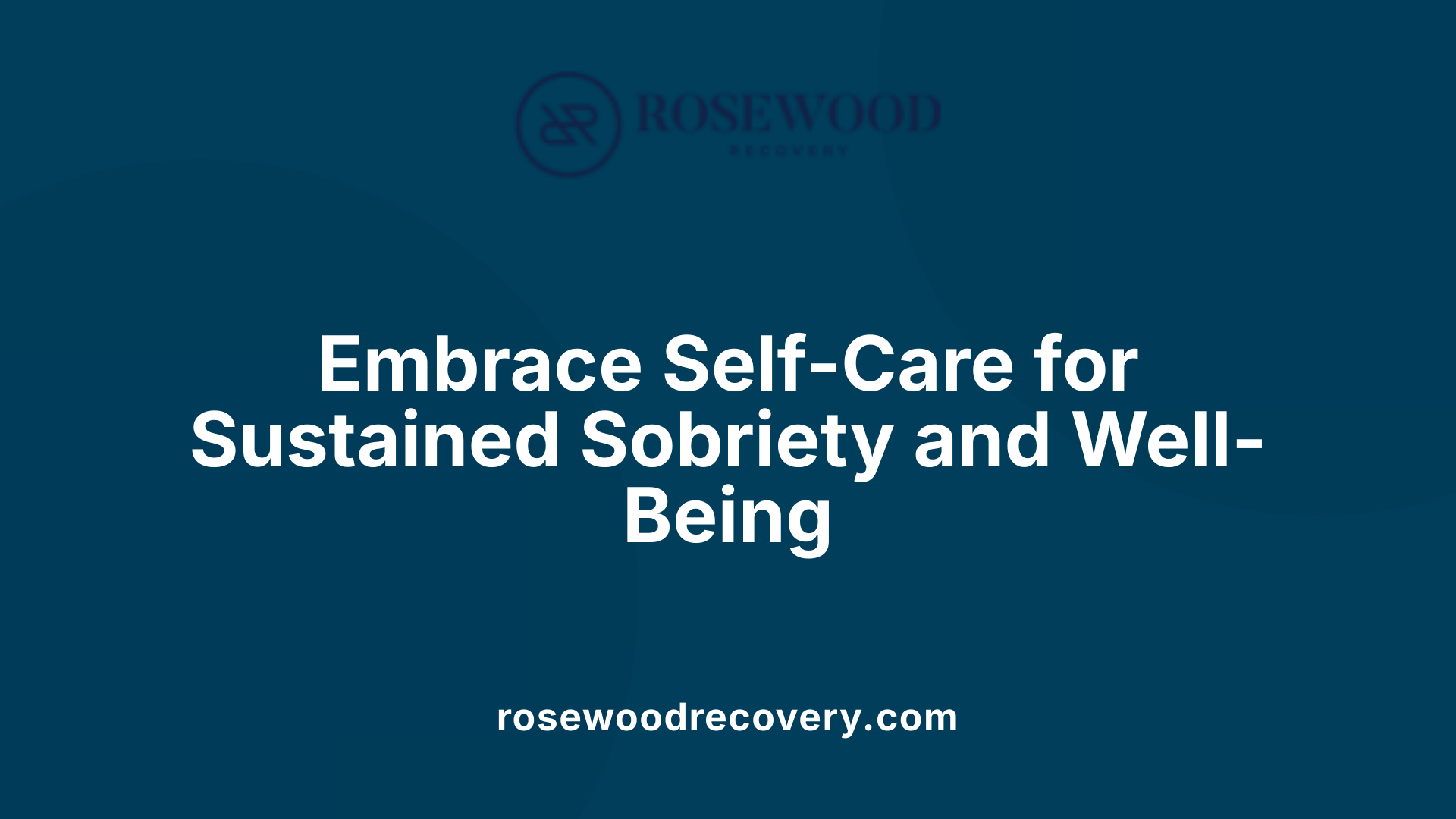Understanding the Role of Emotional Self-Care in Outpatient Rehab
Emotional self-care is a cornerstone of effective outpatient addiction recovery, offering meaningful strategies that bolster mental health, resilience, and relapse prevention. As individuals navigate the complexities of recovery outside of inpatient settings, integrating targeted emotional self-care practices can significantly enhance their journey toward lasting sobriety and overall well-being.
The Critical Role of Emotional Self-Care in Recovery
Why is emotional self-care considered important during outpatient substance use recovery?
Emotional self-care plays a vital role in the ongoing process of recovering from addiction. During outpatient treatment, individuals are often navigating the challenges of daily life without the constant support of inpatient settings. Managing emotional health becomes essential because feelings like stress, anxiety, or sadness can act as triggers for relapse.
Engaging in activities such as journaling, practicing mindfulness, and maintaining supportive social connections helps individuals process complex emotions effectively. These practices build emotional resilience, which is crucial in facing cravings and negative feelings that frequently arise during recovery.
Furthermore, emotional self-care enhances self-awareness and self-compassion. When individuals learn to nurture their emotional needs, they gain better control over their responses and develop healthier coping mechanisms. This proactive approach not only reduces the likelihood of emotional triggers but also strengthens their overall mental well-being.
Incorporating emotional self-care into recovery plans allows for more stability and confidence. It empowers individuals to take ownership of their emotional health, which complements other therapeutic efforts. Ultimately, tending to emotional wellness sustains motivation, supports relapse prevention, and promotes long-term sobriety.
Techniques and Practices Supporting Emotional Self-Care

What techniques and practices of emotional self-care support recovery?
Emotional self-care involves nurturing and managing feelings in ways that promote overall mental health and resilience during addiction recovery. One of the most effective methods is mindfulness, which helps increase self-awareness and allows individuals to observe their emotions without judgment. Grounding exercises, such as focusing on the five senses or engaging in breath awareness, can help calm overwhelming feelings and reduce anxiety.
Journaling and self-reflection are valuable tools that enable individuals to process emotions, track their progress, and recognize patterns or early signs of emotional distress. This introspective practice encourages honesty with oneself and fosters emotional clarity.
Building a strong support system is also crucial. Support groups, trusted friends, family, and professional therapists provide emotional validation, accountability, and a safe space to discuss trauma or challenges. Connecting with others who understand the recovery process can alleviate feelings of isolation.
Maintaining healthy habits — including regular exercise, balanced nutrition, and sufficient sleep — further supports emotional well-being. These habits help stabilize mood swings, reduce stress levels, and increase energy, making it easier to manage emotional fluctuations.
Setting healthy boundaries is essential to safeguard emotional health. It involves learning to say no, prioritizing personal needs, and avoiding toxic relationships. Practicing self-compassion, accepting oneself with kindness, and forgiving mistakes nurture resilience and encourage continued healing.
Incorporating these practices into daily routines strengthens emotional regulation, reduces vulnerability to relapse, and promotes a sustainable recovery journey.
The Benefits of Emotional Self-Care in Outpatient Rehab Programs

What are the benefits of emotional self-care in outpatient rehab programs?
Emotional self-care plays a critical role in supporting individuals during outpatient addiction recovery. One of its main benefits is enhancing emotional resilience, which helps individuals better cope with the stresses and emotional challenges associated with recovery.
Practicing emotional self-care techniques, such as mindfulness, journaling, or engaging in therapy, fosters greater self-awareness and self-compassion. These qualities enable individuals to recognize and manage feelings more effectively, reducing emotional reactivity and stress.
Furthermore, emotional self-care helps in building healthy coping strategies that are vital for dealing with triggers and difficult situations. It also improves sleep quality and overall mental stability, promoting a balanced state of mind.
Engaging regularly in emotional self-care supports stronger relationships by encouraging healthier communication and boundary-setting. This holistic focus on emotional wellness contributes to sustained sobriety and enhances overall quality of life.
Ultimately, integrating emotional self-care into outpatient programs empowers individuals to take control of their recovery, reinforcing resilience, and fostering long-term well-being.
| Benefit | Description | Additional Notes |
|---|---|---|
| Emotional resilience | Strengthening ability to bounce back from setbacks | Facilitates better handling of stress and cravings |
| Mental stability | Promoting calmness and emotional balance | Supports sustained recovery |
| Trigger management | Reducing vulnerability to emotional triggers | Helps prevent relapse |
| Improved sleep | Enhancing sleep quality and reducing stress | Contributes to overall mental health |
| Support in relationships | Developing healthier communication and setting boundaries | Improves social support networks |
Incorporating emotional self-care into recovery plans not only addresses mental health needs but also empowers individuals with tools to nurture their emotional and psychological strength during and after outpatient treatment.
The Impact of Emotional Self-Care on Mental Health Recovery and Well-Being
How does emotional self-care contribute to mental health recovery and overall well-being?
Emotional self-care is a cornerstone of mental health recovery and enhances overall well-being by helping individuals recognize, understand, and regulate their feelings effectively. Engaging in activities like journaling, seeking support through therapy, practicing mindfulness, and cultivating supportive relationships strengthens resilience. These practices reduce stress, improve mood, and foster a positive mental outlook.
By promoting self-awareness, emotional self-care helps individuals identify their emotional triggers and develop healthier responses. Self-compassion, cultivated through these practices, encourages kindness towards oneself—an essential aspect of healing and preventing emotional burnout.
When incorporated with physical activity, healthy lifestyle choices, and social connections, emotional self-care provides a balanced approach to recovery. It creates a strong foundation for personal growth, helping individuals rebuild confidence and control over their lives.
How does emotional self-care enhance resilience and emotional regulation?
Practicing emotional self-care improves our ability to withstand stress and adapt to challenges. Techniques such as mindfulness and acceptance promote emotional regulation by increasing awareness and tolerance of feelings, allowing better management of intense emotions.
Supporting activities like behavioral activation—such as engaging in hobbies or social activities—boost mood and help counteract cycles of depression and anxiety. These practices empower individuals to manage emotional distress more effectively, contributing to sustained mental health.
How does holistic health and personal growth relate to emotional self-care?
Holistic approaches to health integrate emotional self-care with physical and mental wellness strategies. This interconnectedness encourages ongoing personal development. As individuals strengthen their emotional resilience, they often experience improvements in sleep, energy, relationships, and overall life satisfaction.
Creating a routine that includes self-care activities tailored to personal needs not only sustains mental health but also nurtures physical health and social bonds. Over time, this holistic perspective supports continuous growth, leading to better handling of life's challenges and a more fulfilling recovery journey.
| Aspect | Practices & Benefits | Additional Notes |
|---|---|---|
| Emotional Awareness | Journaling, mindfulness, acceptance | Promotes understanding and regulation |
| Emotional Expression | Therapy, supportive relationships | Reduces emotional build-up |
| Resilience Building | Self-compassion, stress management techniques | Enhances ability to recover from setbacks |
| Physical & Social Wellness | Exercise, hobbies, social interactions | Boosts overall well-being and emotional strength |
| Personal Growth | Setting goals, learning new skills | Fosters ongoing development |
Self-care, especially emotionally focused practices, plays an essential part in recovery by fostering resilience, emotional regulation, and overall personal growth. Incorporating these activities into daily routines helps individuals build a healthier and more rewarding life post-addiction.
Incorporating Self-Care into Behavioral Therapy

How can emotional self-care be integrated into outpatient behavioral therapy?
In outpatient behavioral therapy, emphasizing emotional self-care plays a vital role in supporting recovery and overall well-being. Therapists can incorporate specific practices during sessions, such as mindfulness exercises, grounding techniques, deep breathing, and brief relaxation routines, to help clients develop skills for managing emotions effectively.
Modeling these strategies encourages clients to adopt similar practices outside of therapy, fostering ongoing emotional resilience. Therapists also promote the development of daily routines that include activities like journaling, engaging in hobbies, maintaining social connections, and setting personal boundaries. These habits help clients build a strong emotional foundation, essential for handling stress and triggers.
Psychoeducation is another crucial element. By educating clients about different self-care methods—such as meditation, physical activity, and relaxation techniques—they are empowered to implement these tools independently. Creating an environment that values self-care within therapy settings reinforces its importance and encourages clients to make self-care a sustainable part of their lives.
Ultimately, integrating emotional self-care into outpatient therapy not only enhances the therapeutic relationship but also equips clients with the skills needed for long-term emotional stability and recovery.
Building Support Networks and Lasting Habits

What role does emotional self-care play in enhancing addiction treatment outcomes?
Emotional self-care is a vital component of successful addiction recovery. It helps individuals effectively manage negative emotions, stress, and cravings, which are common triggers for relapse. By developing emotional regulation skills through mindfulness practices, therapy techniques like Dialectical Behavior Therapy (DBT), or emotion-focused strategies, individuals strengthen resilience and self-awareness.
Engaging in meaningful activities, maintaining supportive relationships, and practicing self-compassion help foster a sense of stability and safety. These behaviors not only improve mental well-being but also support long-term sobriety by addressing underlying emotional issues.
A warm and empathetic environment during treatment encourages patients to open up and build trust. This strengthened therapeutic alliance enhances treatment engagement and outcomes.
Incorporating emotional self-care at physical, behavioral, and social levels—such as regular exercise, connecting with support groups, and pursuing hobbies—creates a comprehensive approach to maintaining mental health.
Overall, tailored emotional self-care strategies empower individuals to cope with stress more effectively, prevent relapse, and sustain their recovery journey.
Conclusion: Cultivating Self-Care for Lasting Sobriety
 Emotional self-care plays a vital role in maintaining mental health and supporting addiction recovery. Engaging in practices like journaling, setting healthy boundaries, practicing relaxation techniques, and seeking therapy helps individuals process feelings, reduce stress, and build resilience. These strategies foster emotional stability, which is crucial for preventing relapse and enhancing overall well-being.
Emotional self-care plays a vital role in maintaining mental health and supporting addiction recovery. Engaging in practices like journaling, setting healthy boundaries, practicing relaxation techniques, and seeking therapy helps individuals process feelings, reduce stress, and build resilience. These strategies foster emotional stability, which is crucial for preventing relapse and enhancing overall well-being.
Incorporating emotional self-care into outpatient therapy can significantly improve recovery outcomes. Therapists can model self-care behaviors through mindfulness exercises, grounding techniques, and breathwork during sessions. Clients are encouraged to develop daily routines that include self-reflection, physical activity, social engagement, and boundary-setting. Psychoeducation about these practices empowers individuals to manage their emotions independently, supporting ongoing resilience.
Adopting a holistic approach to recovery involves addressing psychological, emotional, and social aspects of health. Self-care activities like meditation, outdoor pursuits, and connecting with supportive networks build a strong foundation for sustainable sobriety. This integrated focus ensures that individuals not only overcome addiction but also develop healthier lifestyles and deeper self-awareness.
| Self-Care Practice | Benefits | Implementation Tips |
|---|---|---|
| Mindfulness and meditation | Reduce stress, enhance self-awareness | Practice daily, in sessions and independently |
| Physical activity | Improve mood, boost energy | Incorporate into routine, like walking or yoga |
| Healthy eating | Support mental and physical health | Focus on balanced diets with fruits, vegetables, and lean proteins |
| Social connections | Foster support networks, emotional strength | Engage in support groups, maintain family ties |
| Rest and relaxation | Replenish energy, improve sleep quality | Establish consistent sleep routines |
Integrating these self-care practices into everyday life builds resilience, promotes emotional healing, and supports long-term sobriety. Continual practice and a comprehensive, compassionate approach to self-care remain essential for lasting recovery.
Fostering Long-Term Wellness Through Emotional Self-Care
In conclusion, integrating emotional self-care practices into outpatient rehab programs is essential for promoting mental health, preventing relapse, and achieving lasting sobriety. By actively engaging in techniques such as mindfulness, journaling, healthy lifestyle habits, and building supportive relationships, individuals reinforce their resilience and cultivate a balanced state of well-being. A holistic approach that combines self-care with therapy and community support empowers recovery, enabling individuals to navigate the challenges of addiction and maintain long-term health. Embracing continuous self-care is not only an act of kindness toward oneself but a vital investment in a healthier, more stable future.
References
- Self-Care Importance in Addiction Recovery for Well-Being
- The Importance of Emotional Regulation in Mental Health
- The Importance of Self-Care For Mental Health
- What is Emotional Self-Care?
- The Importance of Self-Care in Recovery
- The Importance of Self-care in Therapy and Counseling
- The Importance of Self-Care in Mental Health Therapy
- The Importance of Self-Care in Long-Term Addiction ...
- Importance of Self-Care in Addiction Recovery




